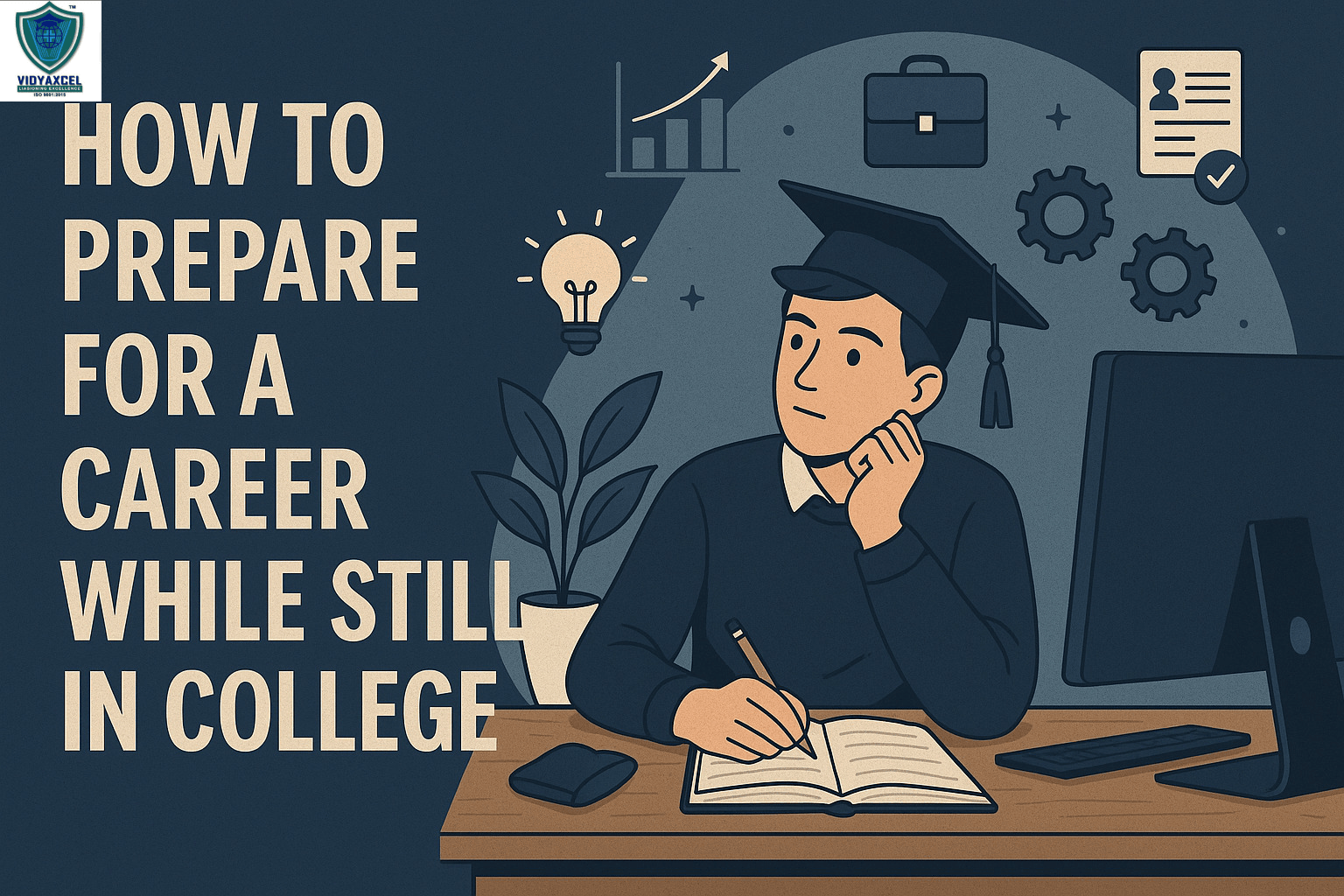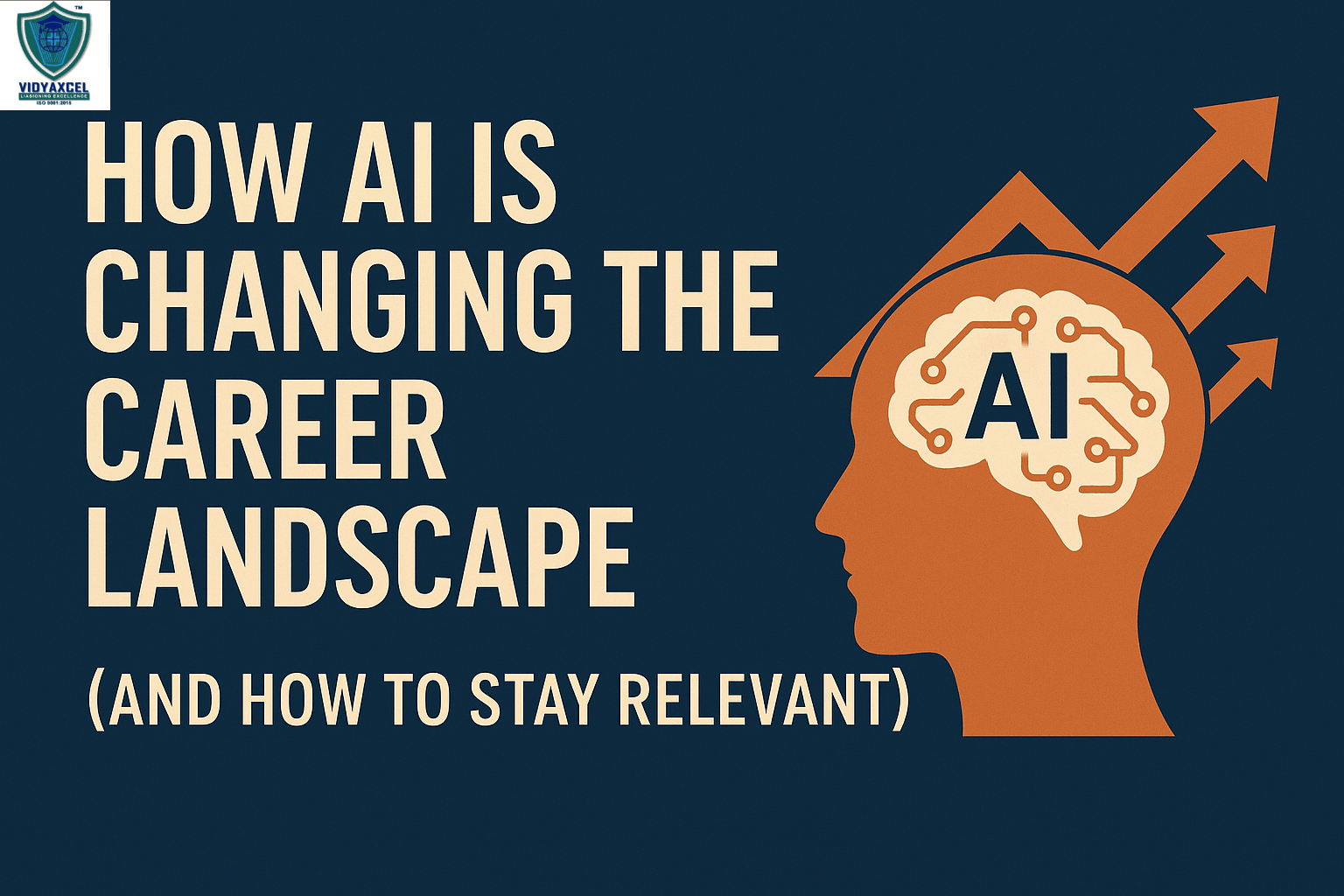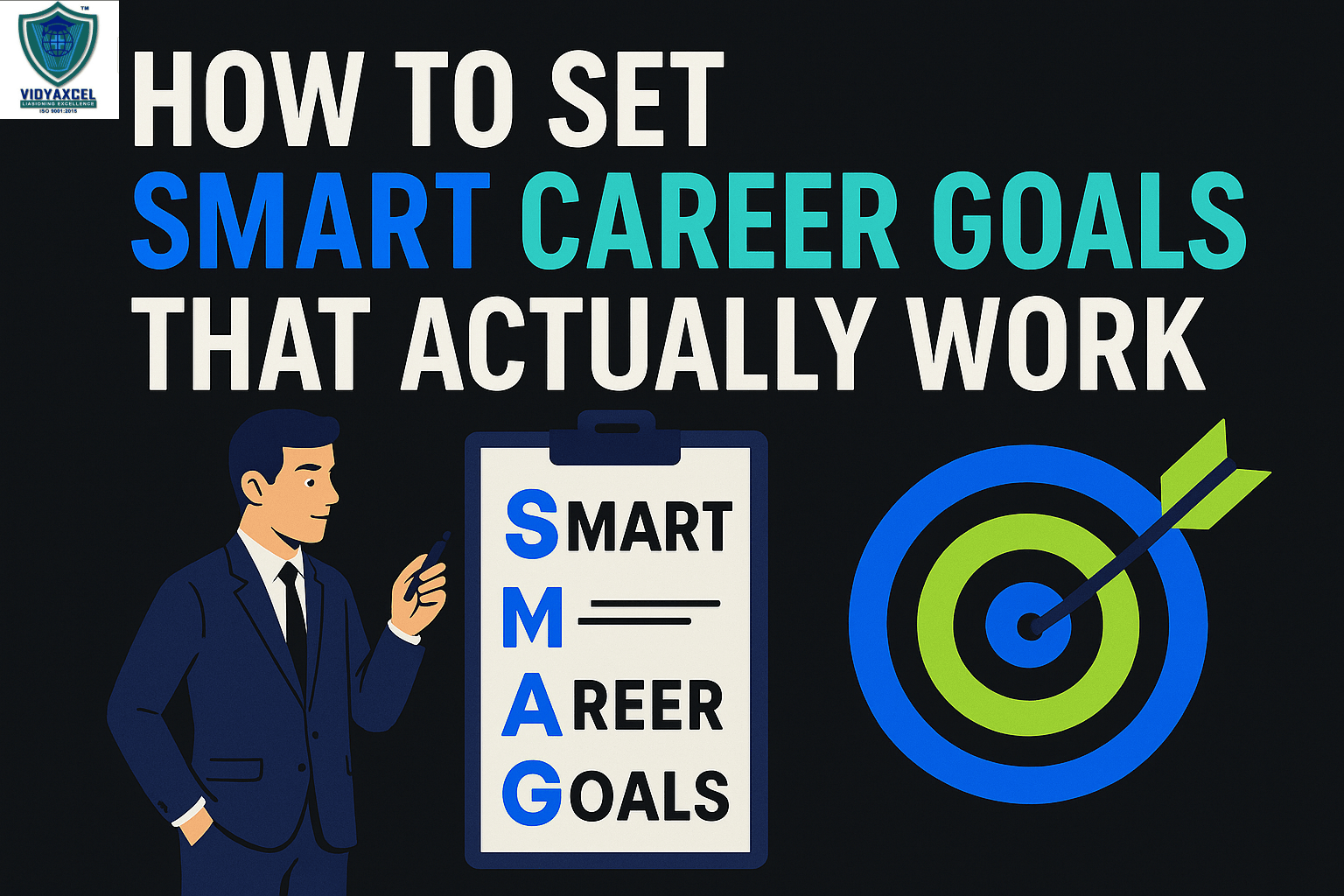Blog Details

06Jun
How to Prepare for a Career While Still in College
College isn’t just about textbooks, lectures, and exams—it’s a crucial phase where the foundation of your future career is laid. Many students mistakenly believe they only need to worry about their career after graduation. However, the truth is that career preparation should begin the moment you step into college.
The earlier you begin aligning your academic journey with your professional goals, the better prepared and more competitive you’ll be in today’s dynamic job market. In this article, we’ll explore how students can effectively prepare for their careers during college, including practical steps, strategic planning, and personal development.
- Understand Yourself: The First Step to a Successful Career
A. Identify Your Strengths and Weaknesses
Understanding your capabilities is the first step toward career preparation. Ask yourself:
- What subjects excite me?
- What do I do well naturally?
- Where do I struggle?
Tools like personality assessments (MBTI, StrengthsFinder, etc.) and career aptitude tests can help you gain valuable insights.
B. Explore Your Interests and Values
Do you prefer working in a team or independently? Is social impact more important to you than financial rewards? Reflecting on what drives you will help you find a career path that aligns with your passions and purpose.
C. Set Career Objectives Early
Set short-term goals (internships, certifications) and long-term goals (specific job titles, industries). Having clear objectives helps you stay focused and make informed decisions throughout college.
- Choose the Right Academic Path
A. Select the Right Major and Courses
Your major plays a significant role in determining your career options. Research career outcomes of your major and select electives that enhance your profile.
B. Enroll in Complementary Certifications
Supplement your degree with certifications in areas like data analytics, digital marketing, programming, or project management, depending on your interest.
C. Focus on Academic Excellence
Good grades matter, especially if you plan to pursue higher education or apply for competitive job roles. Prioritize learning, not just scoring.
- Gain Practical Experience
A. Internships and Apprenticeships
Internships provide hands-on experience, industry exposure, and a chance to build professional networks. Aim for at least one internship each year of college.
B. Volunteer Work and Campus Activities
Volunteering and participating in campus clubs demonstrate leadership, teamwork, and initiative—qualities that employers value.
C. Freelancing and Part-Time Jobs
Freelancing helps you build a portfolio, especially in fields like writing, graphic design, and coding. Part-time jobs also teach time management and work ethics.
- Build a Strong Network
A. Connect with Professors and Alumni
Your professors and alumni can offer career advice, recommendations, and job referrals. Maintain respectful and consistent communication.
B. Attend Networking Events and Seminars
Career fairs, webinars, and industry panels expose you to real-world professionals and trends. Collect contacts and follow up meaningfully.
C. Use LinkedIn Strategically
Start building your LinkedIn profile early. Connect with peers, mentors, and professionals. Share articles, comment on posts, and showcase your projects.
- Develop Essential Career Skills
A. Communication Skills
Clear and effective communication—both written and verbal—is crucial in every job. Practice by participating in debates, presentations, and writing workshops.
B. Problem-Solving and Critical Thinking
These are core skills for tackling workplace challenges. Engage in case studies, group discussions, and real-life problem-solving activities.
C. Time Management and Organization
Balancing studies, internships, and social life teaches discipline. Use planners, apps, or digital calendars to stay organized.
D. Leadership and Teamwork
Take the initiative in group projects, lead a student club, or organize an event. These activities build leadership and collaboration abilities.
- Craft an Impressive Resume and Online Presence
A. Start Your Resume Early
Build your resume from year one. Include your achievements, internships, volunteer work, skills, and certifications. Update it regularly.
B. Create a Portfolio (If Applicable)
Fields-like design, journalism, programming, and marketing require a portfolio. Start compiling your best work online via platforms like Behance, GitHub, or a personal website.
C. Build a Personal Brand
Who are you, and what do you stand for? Develop a professional image on social media and LinkedIn that reflects your strengths and goals.
- Take Career Development Seriously
A. Visit the Career Services Office
Most colleges offer free career counselling, resume reviews, and mock interviews. Don’t wait till the final year to use these resources.
B. Attend Workshops and Webinars
Regularly participate in resume-building workshops, interview prep, career planning sessions, and industry webinars.
C. Get a Career Mentor
A mentor can guide you, provide honest feedback, and help you avoid common mistakes. Your mentor could be a professor, senior student, or professional.
- Explore Career Paths Thoroughly
A. Research Different Career Options
Spend time understanding what various roles entail—daily tasks, required qualifications, salary ranges, growth prospects, etc.
B. Job Shadowing and Industry Visits
If possible, spend a day or week shadowing a professional in your field. Industry visits organized by colleges are also eye-opening.
C. Stay Informed About Industry Trends
Read industry blogs, subscribe to newsletters, and follow key influencers. Staying updated helps you make smarter career decisions.
- Prepare for Placements and Higher Studies
A. Research Companies and Roles
Create a target list of companies. Understand their culture, values, and hiring process. Tailor your resume and applications accordingly.
B. Prepare for Aptitude Tests and Interviews
Many recruiters use aptitude tests, group discussions, and case interviews. Practice regularly using online platforms and mock tests.
C. Plan for Higher Education (If Applicable)
If you aim to pursue a master’s or MBA, research entrance exams (GRE, GMAT, CAT, etc.), universities, deadlines, and scholarships in advance.
- Build Mental and Emotional Readiness
A. Build Resilience and Confidence
College life comes with ups and downs. Learn to bounce back from failures, take feedback constructively, and stay motivated.
B. Practice Self-Care
Burnout can derail your progress. Ensure you get enough sleep, eat well, exercise, and make time for hobbies.
C. Maintain a Growth Mindset
Believe in your ability to learn and adapt. Stay curious, welcome challenges, and view setbacks as opportunities for growth.
- Balance Career Prep and Enjoying College
While career planning is essential, don’t forget to enjoy the journey. College is also about friendships, self-discovery, and memories. Strive for a balance between personal growth and professional development.
Common Mistakes to Avoid
- Procrastinating on career planning: Start early. Waiting till final year can limit opportunities.
- Ignoring soft skills: Employers value communication, adaptability, and emotional intelligence as much as technical knowledge.
- Focusing only on academics: Real-world experience counts just as much as GPA.
- Overlooking networking: Many job opportunities come from who you know, not just what you know.
- Not seeking help: Career confusion is normal—don’t hesitate to ask for guidance.
Conclusion
Career preparation doesn’t start after graduation—it begins the moment you enter college. From choosing the right academic path to networking, developing skills, and gaining experience, every step you take contributes to your career readiness.
With intentional planning, continuous learning, and a proactive approach, you can graduate not just with a degree, but with confidence, clarity, and a solid plan for the future. Remember, the goal isn’t just to get a job—it’s to build a fulfilling, meaningful career.
FAQs
1. When should I start preparing for my career in college?
Start as early as your first year. Early preparation allows you to explore, experiment, and gain valuable experience over time.
2. Can I switch career interests midway through college?
Yes, it's common to discover new passions. You can switch majors or supplement your current degree with certifications or electives in your new area of interest.
3. How important are internships?
Internships are vital. They provide practical exposure, build your resume, and often lead to full-time job offers.
4. What if I don’t know what career I want yet?
Explore broadly—take different electives, join diverse clubs, intern in multiple fields, and talk to professionals. Over time, your interests will become clearer.
5. Should I pursue a master’s degree right after graduation?
It depends on your career goals. Some fields benefit from work experience before higher studies. Research your industry or talk to a mentor before deciding.
Our Office: West Bengal, Maharashtra & Delhi.
For More Infomation about admission in Medical, Engineering, Management & Study in Overseas Details.
View Current Study Overseas, Medical, Engineering & Management Admission Details Video.




